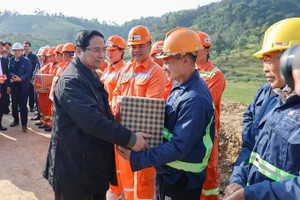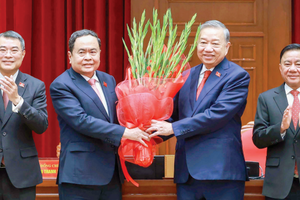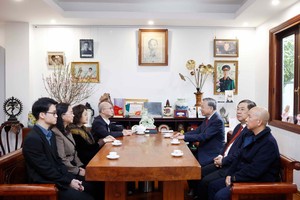
Meeting with representatives of competent ministries, sectors, and foreign consultants to discuss the establishment of the NIC in Hanoi on March 4, PM Phuc laid stress on the necessity of the centre, saying that it will provide grounds for Vietnam to take further steps into the Industry 4.0 era as it will study the application of advanced technologies in Vietnam based on international experience.
The government will do its utmost to support the NIC to bolster innovation in the country, he affirmed, underlining that “the centre must converge and connect talents, as well as promote the start-up ecosystem”.
Last year, the Ministry of Planning and Investment (MPI) was entrusted by the Prime Minister to outline the NIC establishment project, which is said to be a solution to carrying out the national strategy on economic reform and growth model renovation, creating the premise for Vietnam to achieve sustainable economic growth and become a country with a high average income.
At the event, experts said that besides attracting high-quality human resources for the centre, the government should create favourable conditions for investors in terms of land use tax, administrative procedures, and granting intellectual property rights, among others.
If this model is successfully piloted, other centres should be set up nationwide, they recommended.
Meanwhile, Vietnamese ministries and sectors said that the government should take the lead in using innovative products created by the centre to increase its operational efficiency.
The NIC is a part of the Ministry of Planning and Investment’s Vietnam Innovation Network initiative launched in August 2018. According to the project’s draft plan drawn up by the MPI’s Central Institute for Economic Management (CIEM), the NIC will be developed on an area of 23 ha in Hoa Lac Hi-Tech Park with total investment of VND 1.9 trillion (US$82.6 million), including VND1.7 trillion ($73.9 million) for the physical construction and VND200 billion ($8.7 million) for operating capital.
The project, set to break ground later this year, will be developed within three years, and could be put into operation by 2020.
The NIC is expected to lure 40 big technology companies, 150 startups and small- and medium-sized enterprises, and 15 venture investment funds, thereby creating more than 5,000 jobs.
The NIC will focus on a number of priority sectors to begin with, such as developing hardware and software for smart factories and smart cities, digital content, and network security.
























